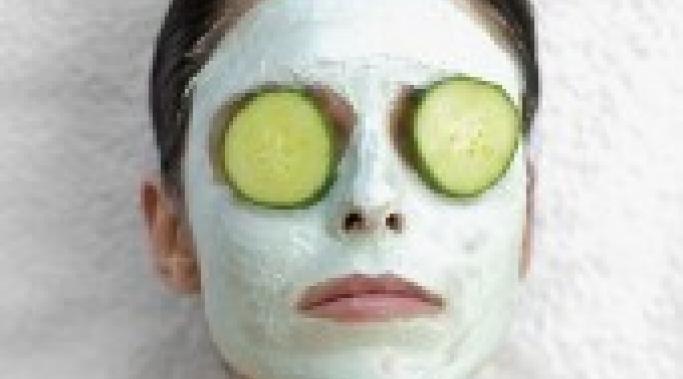For decades, academics from various disciplines have sought to identify a quantifiable link between manic depression (bipolar disorder) and artistic creativity. Admittedly it is not possible to do a comprehensive work-up of Beethoven, for example, and consequently a diagnosis of bipolar disorder based on the second-hand descriptions of bill collectors, cleaning ladies, and piano-tuners would seem like reaching – at best – and twaddle, at worst.
However, the idea’s tremendous appeal has caused it to persist despite overwhelming improbability. Perhaps this is because true artistic genius is so difficult for squares and apple-pie eaters to understand that the only plausible explanations are divine inspiration or, something equally incomprehensible, madness.
Since artists are almost universally disliked, it may also be a convenient way for Jim & Joanie Lunchbucket to belittle their accomplishments. Extrapolating a bit further, it might support the idea that art itself is an essentially pointless exercise since it is frequently the product of people so far short of a full deck that a game of solitaire would be a love song to futility.
Culture
When the Newark School Of Psychiatry asked me to give their commencement address I knew I’d been granted an important opportunity, the chance to influence idealistic young men and women who will help shape the future of mental health care.
As I walked on stage the sound of pigeons coughing mingled with scattered golf applause. I began.
Like it or not, mentally ill people need to find employment just like everyone else. This leaves many of us wondering – precisely where might a mentally ill person slip into the workplace undetected? Indeed, what kind of jobs are mentally ill people even capable of performing? Well, the answer might surprise you!
Obviously, even the most seriously impaired in our midst are qualified for positions in The State Department, House Ways & Means Committee, Senate Sub-Committee For Overseeing The Oversights Of The House Oversight Committee, and Halliburton.
But, beyond the rarefied world of insider politics - where nothing consequential occurs and receiving money simply for demonstrating the ability to appear busy while basking in incompetence and indolence - is a world of real labor, populated by skilled professionals accomplishing meaningful tasks. It’s true!
If you’re anything like me, and I hope for your sake and the sake of your children that you are not, you’ve wrestled with your mental illness secure in the certainty that society cared about you only to the extent that it fervently wished you would excuse yourself from the room and be scarce in the way voles are scarce; that is to say, demonstrate your respect for “nice” people by remaining invisible to them.
Frankly, there is something soothing about looking at the ladder which leads up and up to society’s golden promises only to realize that the first few rungs of yours have been sawed in half and you won’t even have a chance to fall off, much less climb. Soothing because, in life, it is comforting to know where one stands, or, as is the case here, doesn’t stand. If you aren’t shocked and surprised by every disrespectful snub and injustice, you cannot be disappointed and consequently, will harbor no resentment. (To put it differently, it is the illusion of a just world that causes heartache, not the sting of an unjust one.)
This is the season of vacations, and let’s be honest, no matter who you are or what you do, a break from the demands of your daily existence would be welcome. Interestingly, no matter how glamorous your day job might be, research indicates that when you vacation you want to get as far away from it as you can.
For example, a recent study by psychologists at The University Of Basingstoke revealed that 77% percent of NFL quarterbacks said scrapbooking is their favorite leisure activity, with interpretive dance running a distant second.
Pickpockets, not surprisingly, take a break from the rigors of their job by vacationing in nudist colonies. Without a scrap of temptation to be found they are safe from themselves and can unwind, secure in the knowledge that work is not even an option.
Voyeurs, by contrast, go Polar to relax – North and South – in search of climate so ferociously cold that inhabitants must stay clothed 24/7. Freed from the prison of their pathology they take up residence in the safe, warm expanse of imagination – like the rest of us.
This is the golden age of political correctness, and for the mentally ill in our midst, it simply couldn’t happen soon enough. Horrible slurs like porridge-head, cracker academy graduate, and el whackadente have been replaced by culturally sensitive terms such as, unreality-enabled, extra-normal, and sanity-challenged.
But removing the fangs from common speech is just the beginning. Increasingly there is sensitivity about what questions may be considered appropriate to ask a person wrestling with mental illness. Here are just a few of the most common of them, now considered intrusive, prejudicial, stereotypical, and rude.
1. Why don’t you just get over it?
2. Is what you’ve got really a disease, or it is it just a character flaw?
3. Did you ever try growing up?
4. Why is there a duck on your head?
5. Have you looked into Scientology?
I’m glad to report that the use of knee-jerk, judgmental questions like these is on the way out. But my feeling is, why stop there? Now that we’ve built up a little momentum, let’s expand the list of verboten phrases – questions and comments simply off limits when it comes to the mentally ill among us.
Mental illness is a vibrant, evolving discipline that is never the same two days in a row. The skilled professionals in our midst are continually wrestling disorders and syndromes to the ground, subduing them, and teaching the rest of us how to deny them a second chance.
But, to paraphrase Zig Zigler, “Every time a window slams shut on your fingers, a trap door to the basement opens.” In other words, mental illnesses are leaving us all the time, but new ones are always emerging to take their place. Indeed, without a steady stream of newly minted mental illnesses producing an endless succession of chat show guests, virtually all TV hosts would be unemployed.
While the traditional wellsprings of mental illness may still be relied upon, forward thinking psychiatrists, pharmaceutical companies, and tattoo parlors are looking to social networking – dubbed “social nutworking” by insiders – as the greatest growth area for psychological disorders in years to come.
Here are just two of the newly minted mental disorders resulting from our cultural obsession with water-skiing squirrels.
According to a recently released survey conducted by The National Association of National Associations, your choice of vehicle may be telling the world a whole lot more about you than you think, in fact, it might even reveal what, if any, form of mental illness hounds you, dogs your every step, and accounts for ruff patches in your life.
Ashton Frampton, spokesman for the HMMA (Heavy Mental Motoring Association), which sponsored the study, put it like this. “While automobile ownership is not proof of insanity, we have noticed that many different forms of mental illness track closely with specific cars. To start with a very simple example, every Hum V owner in the study was plagued by delusions of other people’s grandeur.
For years, members of The National Association of Mental Health Professionals Hoping To Influence Public Perceptions of Whackadoomiousness (NAMHPHIPPW) have sought out ways of educating the public, eroding stigma, and charging off expensive lunches at swank restaurants.
The PR wing of this advocacy organization is very excited about a new, innovative public awareness campaign they’re calling, Odd Aid. NAMHPHIPPW officials agree that the best way to shift cultural perceptions is by going directly to popular public figures. Building on the success of Live Aid and Farm Aid, Odd Aid will feature a host of legendary performers; with one important difference.
Every participating Odd Aid artist will be performing an original song specifically designed to shed light on a particular form of mental illness. Stigma beware; this plethora of plucky performers is out to get you!
Passive/Aggressive Behavior (PAB) plays an integral role in various kinds of mental illness. Historically referred to as Obnoxious Behavior (OB) or just plain Irritating Behavior (IB), Passive/Aggressive Behavior has been identified as both symptom and cause of a dizzying assortment of psychological maladies including, but not limited to, paranoia, paranormia, pareschewed, and Chumley Standpipe Syndrome (CSS).
Early psychiatrists, realizing PAB to be a very sneaky and elusive foe, adapted an innovative approach to treatment. They reasoned that, rather than causing patients to feel guilt about passive aggressive behavior, long-term recovery goals would be much better served by luring PAB out of its lair with promises of rewards, praise, and lucrative commercial endorsements. Far easier to treat a condition after it’s ventured into the open, they reasoned.









